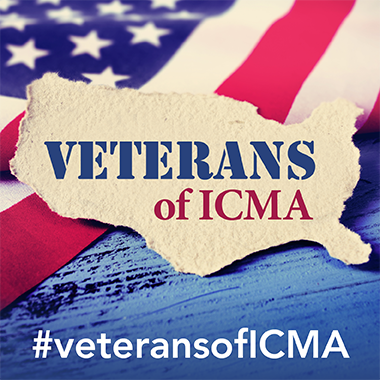
Peter Auger (PA), city manager, Novi, Michigan, has worked in public service for the past 29 years, including his service in the U.S. Army, where he was a non-commissioned officer. He credits much of his leadership experiences on team building back to the basics in team sports, where he played college and semi-pro football and international basketball representing the Army, as well as his military service.
He prides himself on building teams to accomplish community goals, raise standards, and create more opportunities. Some of these efforts have been noticed through his team’s accomplishments in areas like the Michigan’s Best Well-Head Protection Program that also won the Best Well-Head Protection Program in the Country or the Best Water Utility in Michigan.
Peter sits on 14 boards, and has sat on or chaired many Michigan Local Government Management Association and Michigan Municipal League Committees. He is on the Army Board for the Greater Detroit Area and was elected to the National Steering Committee for the Mayors Automotive Coalition (MAC). He is currently president of MLGMA.
Q1: After serving in the military, what interested you in having a career in local government?
PA: I first went into law enforcement before switching gears so I could make a larger impact on the entire community.
Q2: What skills/knowledge/background from your military career have you been able to apply to your local government career?
PA: First would be discipline. Focus on the task at hand while keeping an eye on the larger picture. The second would be the leadership lessons that I learned. To be able to inspire other others to do things they may have thought they could never do.
Q3: Do you have any tips/advice for active duty personnel or veterans who are interested in a career in local government?
PA: Don’t underestimate the skill sets you have or the experience in the military. Many of these skills and experience transition very well into continued service.
Q4: With veterans returning home to a weak and challenging labor market, have you implemented any sort of veteran’s program in your community, such as: employment, health, housing, education, and the transition to civilian life?
PA: When I exited the service, it was a very similar downturn in the economy. Don’t let the “economy” frame your existence. In the military, I was used to 16 hour days; in civilian life, that transitioned into working three jobs until I could get into college. The second thing is if you can learn what they teach you today in the armed services, you can learn anything. Just apply the same tenacity you needed to survive in the service to anything you take on: college, trade school, or new career.
Q5: Are there any educational/professional development programs that you would recommend to veterans who are transitioning from a career in the military to a career in local government?
PA: Most positions I see need a minimum of bachelor’s degree. Use any service-related benefits to leverage that education. I know it’s just a piece of paper (the degree), but sometime you have to have the credential to get your foot in the door. Military background with a degree is a strong applicant to a lot of local government careers.
New, Reduced Membership Dues
A new, reduced dues rate is available for CAOs/ACAOs, along with additional discounts for those in smaller communities, has been implemented. Learn more and be sure to join or renew today!
